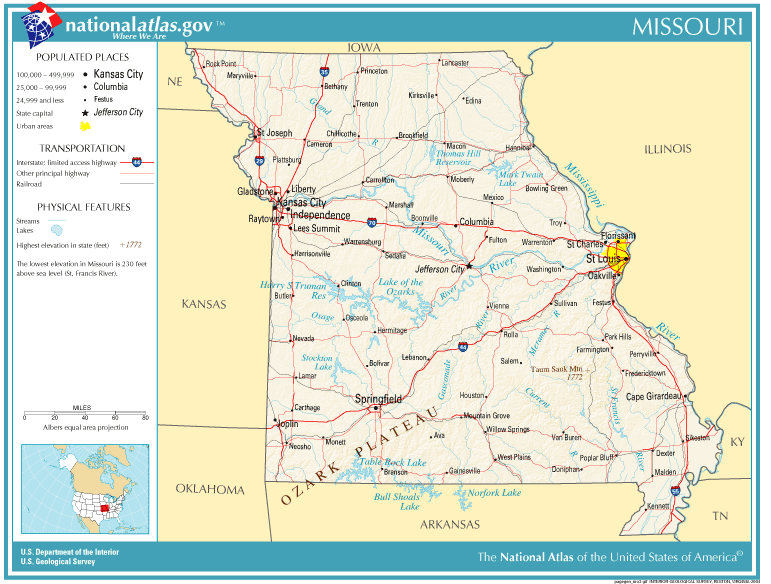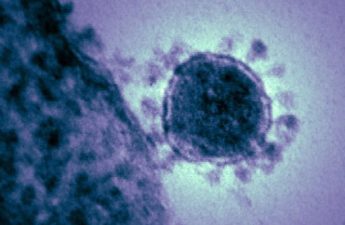
by Jeremy Kohler, ProPublica
Amid the current surge in COVID-19 cases in Missouri, a recent Facebook conversation between two Republican state lawmakers is telling.
Around Independence Day, State Rep. Bill Kidd, from the Kansas City suburbs, revealed that he has been infected by the coronavirus.
“And no, we didn’t get the vaccine,” he wrote in a post that has since been deleted. “We’re Republicans 😆”
State Rep. Brian Seitz, a Republican from Taney County, home to the tourist destination of Branson, commented on the post by falsely claiming that the virus had been developed by top government scientist Anthony Fauci and billionaire Microsoft founder Bill Gates. They “knew what was coming,” Seitz wrote.
“The jury is still out on the ‘vaccine’ (who knows what’s in that),” he wrote.
As the number of coronavirus infections rises around the country, lawmakers like Kidd and Seitz have adopted responses that trouble many health officials. In Tennessee, Republicans legislators threatened to shut down the state health department, saying it was targeting minors for mass vaccinations without the consent of parents. In Ohio, lawmakers allowed a doctor to testify at a legislative hearing last month that coronavirus vaccines could leave people magnetized (they can’t). During a hearing in the Montana Senate, a senator said he had read articles about “putting a chip in the vaccine.” (There are no chips in vaccines.)
Just as with his insistence that he won the election, former president Donald Trump’s attitudes about COVID-19 hold great sway with his supporters. Trump routinely bashed Fauci and infectious disease experts throughout the pandemic and questioned the severity of the coronavirus.
He also strongly carried Missouri’s southwest corner in the November election. While Trump beat Joe Biden by 15.4 percentage points statewide, in rural Taney County, the margin was 57.8 points.
Those supporters now tend to oppose efforts to get everyone vaccinated, believing they are being led by Democrats, said Ken Warren, a professor of political science at Saint Louis University who tracks state and local politics. “It’s a sad reality,” he said. “We can’t get together on anything, even fighting COVID.”
Such attitudes are accelerating an anti-vaccine sentiment that has run strong in the state legislature for years, particularly with lawmakers from the area of Missouri now facing increased infection rates. In 2018, Republican state Rep. Lynn Morris, a pharmacist from southwest Missouri, pushed a proposal to prohibit discrimination against unvaccinated children. Public school children are required to be vaccinated against several diseases, but families can claim a medical or religious exemption. The Legislature took up a similar proposal in 2019. Each failed.
Late last year, state Rep. Suzie Pollock, a Republican from south-central Missouri, proposed a bill to prohibit discrimination against people who choose not to be vaccinated against the coronavirus. She claimed the vaccine against the virus had “been rushed” and that its efficacy was “in question,” myths that have been relentlessly amplified by right-wing media.
The bill did not advance, but Gov. Mike Parson signed into law a related bill blocking local governments from requiring proof of coronavirus vaccination for people seeking to access transportation systems or other public services.
It’s not enough for some. “Now people are pushing back even against the idea of private employers like hospitals and health care providers telling their employees you have to be vaccinated,” said state Rep. Shamed Dogan, a Republican from the St. Louis suburbs. “I think that some of the legitimate concerns of government overreach have turned into this broader resistance to any vaccination, which is something I don’t agree with.”
Late in this year’s legislative session, Pollack pushed a proposal that would allow more parents to opt out of vaccinating their children against diseases including polio, measles and mumps. Pollock insisted she was not against vaccines, but said that people should have the freedom to choose. The House Elementary and Secondary Education Committee voted 10-6 in favor of the bill.
The full House defeated it on April 28 in a 79-67 vote.
“There is a tremendous skepticism about the good that government can do,” said Dan Ponder, a political science professor at Drury University in Springfield and director of the Meador Center for Politics & Citizenship there.
Ponder said many residents of southwest Missouri question the motives behind the policies that governments are pushing and show “a tremendous skepticism about information.” He added, “People don’t believe the vaccines are working. People don’t believe the federal government isn’t going to come down here and … basically strong-arm them into taking a vaccine.”
Indeed, when the Centers for Disease Control and Prevention deployed a two-person “surge response” team to southwest Missouri this month to combat an outbreak attributed to the dangerous delta variant, both Parson and U.S. Rep. Jason Smith, from south-central Missouri, tweeted opposition to federal agents going door to door to compel vaccines, something President Joe Biden’s administration said it never had any intent to do.
On Sunday, Springfield Mayor Ken McClure told CBS’ Face the Nation that his community was “being hurt” by rampant vaccine misinformation. He said people were sharing “health-related fears, what it might do to them later on in their lives, what might be contained in the vaccinations. And that information is just incorrect.”
Taney County is near the heart of the surge of the delta variant, which health officials say spreads more easily than earlier versions of the virus. The county is leading the state with the highest rate of coronavirus cases over the past seven days, according to Missouri health department data. Surrounding counties have similarly high rates, raising alarms for federal health officials.
Despite the spike, just 28% of Taney County’s residents are fully vaccinated, below the state average of 40%.
Seitz, who once owned a newspaper that promoted Branson’s entertainment industry, boasted in an interview that the Ozark tourist town was doing gangbuster business after a year of being mostly shut down.
“There were 27,000 people at our July 3 celebration,” he said, noting that he attended with U.S. Rep. Billy Long and “he said something like, ‘I’m so glad to see there are very few chin diapers in the crowd.’ The roar was huge … we’re so happy not to be forced by government to either wear a mask or take a vaccine.”
Seitz said he had no business telling his constituents how to live. The media has shifted its focus from deaths to the raw numbers of cases, he said, glossing over that most people who catch the virus don’t die. While 600,000 American deaths have been attributed to COVID-19, Seitz questioned whether people were dying from the disease or from existing health problems: “If a person is grossly overweight and caught a very virulent virus, did they die because they were in very ill health or did they die because of the virus?”
Seitz falsely claimed that COVID vaccines have not been tested and are unsafe. He backed down on his comment about Fauci on Kidd’s Facebook post, acknowledging that the virology expert did not create the coronavirus but asserting that he had been engaged for years in experiments to make viruses more dangerous or transmissible. Fauci has insisted the U.S. government did not participate in experiments that could have caused the pandemic.
Seitz said he had nothing against people who take the vaccine or wear masks. It’s their choice, he said. He said it wasn’t his job to keep people safe, but to keep people free.
“I haven’t had the flu even since 1994,” he said. “Why would I take a vaccine? … My life was normal for the past year, very few instances of wearing a mask, and so forth, and I’m just fine.”
Betsy Fogle, who recently completed her first session as a Democratic state representative from Springfield, said it was “fascinating kind of watching the narrative and the rhetoric” in the state capital of Jefferson City surrounding COVID-19, “and then watching it all get politicized and polarized. And then seeing that real-life impact that has on our neighbors back in Springfield when our hospitals are full and our hospital CEOs are begging people to get vaccinated and people just aren’t doing it.”
She said there was a mentality among Republican leaders “that COVID is a hoax, or that vaccines are a hoax, and that trickles down.”
She said she has several constituents who didn’t get vaccinated “because they think that this is a joke, and then these people reach out a month later to say, ‘I’m sorry I didn’t listen.’”
Kidd, the Republican from the Kansas City area, posted almost two weeks after his initial Facebook post that he was seeking prayers because he was “having a difficult time with COVID” and “really sick.” Kidd posted again on Thursday that he was “doing better” after the virus “kicked my butt.” He did not respond to a message from a reporter.
Fogle said she hoped Kidd recovered, “but that’s the frustrating part about it, is that our hospitals, our doctors, our people who are in charge of making these decisions are telling us how severe it is, and we refuse to accept that severity.”
She said she makes daily calls to everyone she knows who isn’t vaccinated “and what I hear is, ‘No, it’s my right, it’s my body, it’s my choice, like, stop bringing this up.’ And it’s hard to win those arguments.”
ProPublica is a Pulitzer Prize-winning investigative newsroom.
Sign up for The Big Story newsletter to receive stories like this one in your inbox.


